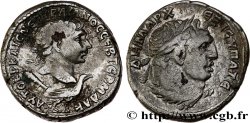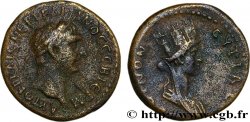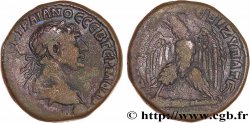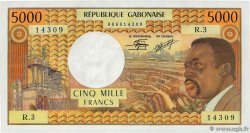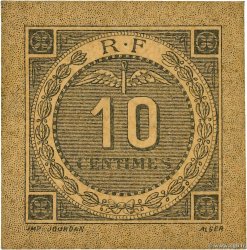bpv_720660 - TRAJANUS Tétradrachme syro-phénicien
Not available.
Item sold on our e-shop (2024)
Price : 150.00 €
Item sold on our e-shop (2024)
Price : 150.00 €
Type : Tétradrachme syro-phénicien
Date: 103-109
Mint name / Town : Tyr, Phénicie
Metal : silver
Diameter : 27 mm
Orientation dies : 6 h.
Weight : 14,96 g.
Rarity : R1
Coments on the condition:
Exemplaire sur un flan large et ovale, bien centré des deux côtés à l’usure régulière. Patine grise superficielle. A été nettoyé
Catalogue references :
Obverse
Obverse description : Tête laurée de Trajan à droite (O*).
Obverse legend : .AUTOKR KAIS NER TRAIANOS SEB GERM DAK., (Autokrator Kaisar Neruaos Traianos Sebastos Germanikos Dakikos)
Obverse translation : (L'empereur césar Nerva Trajan auguste germanique dacique).
Reverse
Reverse description : Aigle debout de face sur une massue, manche à droite, les ailes déployées, la tête tournée à gauche .
Reverse legend : DHMARC. .EX. UPAT. E., (Dhmarcikhs Exousias Upatos e)
Reverse translation : (Puissance tribunitienne, consul pour la cinquième fois).
Commentary
Rubans de type 3.







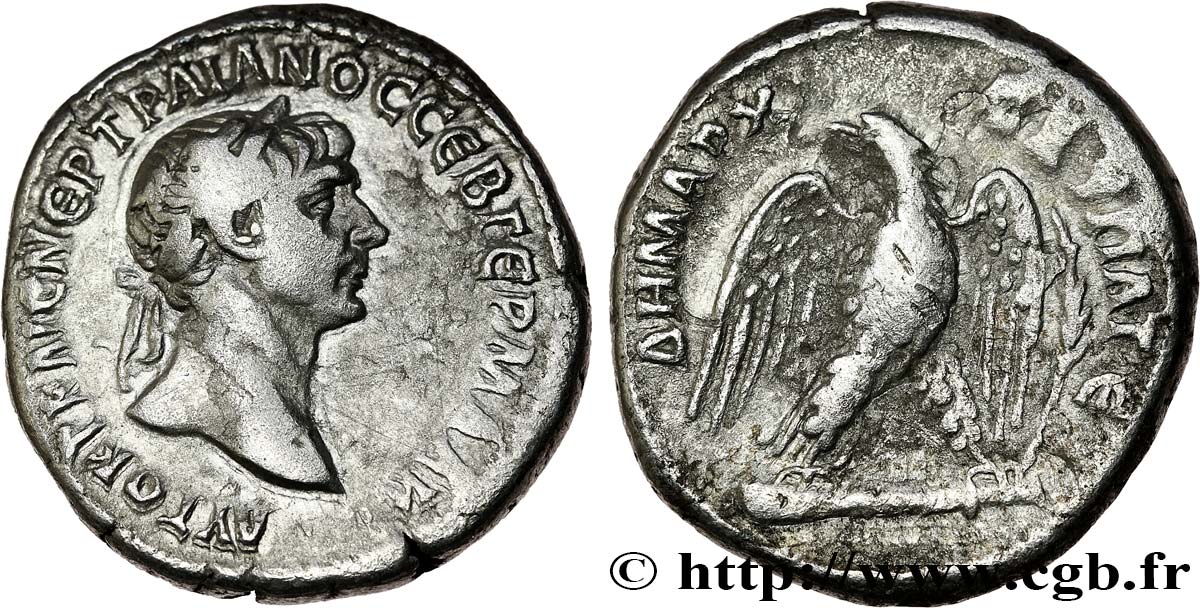
 Report a mistake
Report a mistake Print the page
Print the page Share my selection
Share my selection Ask a question
Ask a question Consign / sell
Consign / sell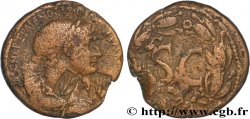
 Full data
Full data